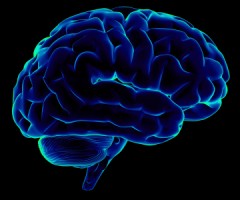Theory of Mind refers to a person’s ability to infer mental state in others. It is the ability to explain observable events based on desires or emotions, knowing that other people think differently from you, being able to take another person’s emotional perspective, being able to put other people’s feelings before your own, and thinking about the consequences of your actions before engaging in them. No one actually teaches us to make attributions we just do it automatically. For the most part, people are able to make good guesses at someone’s intentions. From these inferences, we determine how to react to the person.
Theory of mind development begins early in life. Antecedents to theory of mind development are evident in infancy. At 5 months of age, typical children can recognize different facial expressions, but understanding the meaning occurs a few months later. Once young children are able to reliably interpret the facial expressions of others, they begin to use this nonverbal information to guide their behavior. For example, a toddler may look at his mother’s face for cues about whether it is safe to approach an unfamiliar person.
During an intake of a young adult the doctor was asking questions about the patient’s history. When he came to the question on the patient’s past hobbies the patient answered “trains.” For the next hour the patient excitedly treated the doctor to a one way discussion on every aspect of every train past to present. The patient had no concept of what of what the doctor needed to know for the intake. The patient’s ability to form a model in his own mind about what the doctor was thinking and needing information wise was not existent. Additionally when the patient began to talk about the trains he was unable to stop his verbal output once it started.
In another example of theory of mind a young boy with Asperger Syndrome was shown a Lego’s Star Wars X Winged Fighter box and asked to guess what was inside. He guessed Legos to make an X Winged Fighter. The box was opened and revealed that, instead of Lego’s, there were stickers inside. Next, he was told that his mother was going to be invited into the room and asked what he thought that she would say was in the box. Unable to separate what was in his mind (based on his experience) the boy said that his mother would think there were stickers in the box.
The development of theory of mind is critical since success in life is not just based on ability; more so it is a factor of one’s social functioning and reasoning. When we can “mind-read” other people, we can become significantly more effective in our interactions with everyone we encounter. Theory of Mind can have a significant negative impact on social interaction and relationships of children and teens with an Autism Spectrum Disorder. By not understanding that other people think differently than themselves, many individuals with an Autistic Spectrum Disorder may have problems relating socially and communicating to other people. That is, they may not be able to anticipate what others will say or do in various situations. In addition, they may have difficulty understanding that their peers or classmates even have thoughts and emotions, and may thus appear to be self-centered, rude, disrespectful, eccentric, or uncaring






